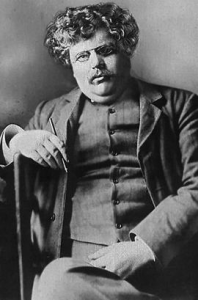Doc Watson’s World Without Lawyers
 If you search the phrase “Doc Watson” in the Lexis database you will find 13 reported cases in which those two words appear consecutively. However, none of the 13 has anything to do with Arthel Lane “Doc” Watson, the legendary blind guitar player and folksinger, who passed away in Winston-Salem, N.C., last week. Watson managed to avoid the intellectual property rights disputes and other legal issues that have plagued the professional lives of many performers.
If you search the phrase “Doc Watson” in the Lexis database you will find 13 reported cases in which those two words appear consecutively. However, none of the 13 has anything to do with Arthel Lane “Doc” Watson, the legendary blind guitar player and folksinger, who passed away in Winston-Salem, N.C., last week. Watson managed to avoid the intellectual property rights disputes and other legal issues that have plagued the professional lives of many performers.
Doc Watson was born in 1923 in Deep Gap, North Carolina, a small community just to the east of the town of Boone. He lost his sight at the age of one, and he picked up the nickname “Doc,” as a young performer when stage announcers had trouble pronouncing “Arthel.” (The “Doc” reference was apparently to “Doctor Watson” of Sherlock Holmes fame, although there was a baseball player named Doc Watson who pitched for the Chicago Cubs in the early 1910’s.)
Watson began playing the guitar as a child and began performing publicly as a teenager. Although a successful regional musician as early as the 1940’s, he first received widespread attention in the early 1960’s, when he was “discovered” by the world of folk music. In 1964, he began to perform regularly with his son Merle (b. 1949), a collaboration which lasted for more than two decades until it ended suddenly in 1985, when Merle was killed in a tractor accident on the family farm.
Over the course of his career, Doc, who was also recognized as an outstanding singer of old-time country music, won too many awards to enumerate here, but his honors included seven Grammy Awards over the span of four decades, along with a Grammy Lifetime Achievement Award in 2004, membership in the Bluegrass Hall of Fame, and an honorary doctorate in music from Boston’s Berklee College of Music.
I have spent much of my academic career studying the way that lawyers are depicted in popular culture, and I have also spent a great deal of time listening to the music of Doc Watson. While many of his recordings were instrumentals, he also recorded dozens of traditional story songs, and in his stage performances, he was a frequent and gifted story-teller.
However, I cannot think of a single Doc Watson recording that makes any reference to lawyers or judges.
An occasional outlaw appears from time to time—as one does by reference in “Tennessee Stud”—but in Watson’s songs disputes are settled personally (and sometimes violently), but never in a courtroom. The America of Doc Watson’s songs was a rural, frontier paradise where people settled their own disputes between themselves. Like Thomas More’s Utopia, it was a place where lawyers were neither needed nor desired.
I met Doc Watson one time. In the early 1980’s, I was having breakfast with friends in Charlie’s Kitchen, in Cambridge, Massachusetts. In that era, Charlie’s Kitchen was one of the few places in Harvard Square that opened early for breakfast (and it was also the only place where you could get a mixed drink before nine in the morning.)
We were breakfast regulars there, along with an assorted cast of characters, few of whom actually ate any breakfast. One morning in 1981 or 1982, around 7:30 a.m. who should walk in but Doc and Merle Watson, looking for breakfast. Country and old-time music aficionado that I was, I recognized the two of them immediately. My friend Gene Wayne, from Moundsville, W.Va., didn’t seem to recognize them at first, but realized immediately who they were once I pointed them out to him. Our other two friends, who were from Hilo, Hawaii, and Cape Madeline, Quebec, knew the name but did not appear to be completely up to speed on Doc’s music.
The two Watsons sat down at the table next to us, and Connie, the Irish bartender, asked them if they wanted breakfast. After they ordered, I shouted out, “Doc, we’re great fans of your music. It’s an honor to have you here.” Doc, of course, couldn’t see me, but after Merle mumbled something to him that I didn’t hear, he replied in that wonderfully lush North Carolina mountain voice, “Thank you boys. We appreciate that. We really do.” And then he asked up if we were students and we chatted for a while before we all went back to our fried eggs and hash browns. I never mentioned that I was a law school graduate.
On a final, sad note, Doc passed away on my 60th birthday.


